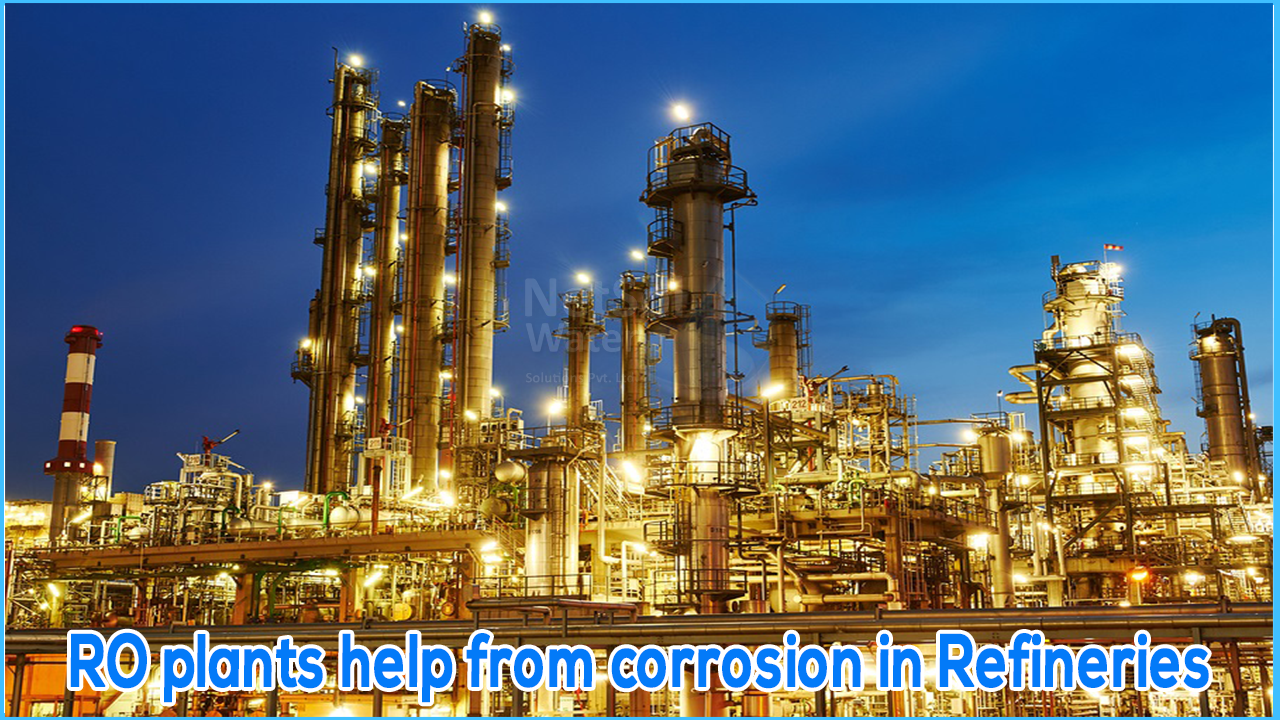Corrosion in the refinery has been the subject of numerous studies, publications, courses, and web forums. Much of what has been written shows that significant progress has been made in understanding corrosion, but it also makes it clear that the problem persists and can get worse.
The global cost of refinery corrosion is estimated to be in the order of $ 15 billion annually. More precise figures cannot be obtained as refineries do not disclose the extent of their corrosion problems, which is understandable given the increasing environmental legislation they face. It's worth noting that this didn't factor in costs, lost profit, and production time downtime. An analytical report from NACE International states that in the US alone, annual loss of earnings from refinery corrosion can reach $ 12 billion! Despite extensive research and literature, many of the corrosion mechanisms are still not fully understood. The problem with oil refining is that there is no single source of corrosion, there are many. To make the problem worse, some of the corrosive agents can interact and increase or inhibit the corrosivity of the other. The physical conditions of the process also plays a role; therefore temperature, flow, and Reynolds number must also be considered. The infrastructure of the refinery itself is no less important. Of course, pipes, containers, welds, instruments, etc. are also included. Given the many variables, corrosion is a complex problem.
Causes of corrosion in Refineries
· Sulphur One reason the situation is not going to improve anytime soon is the increasing processing of low-quality acidic crudes. Sour crude oil is a crude oil with a high sulphur content (as opposed to low sulphur "sweet" crude oil). Because it offers lower raw material costs, refineries prefer acidic crude oil for economic reasons. Additionally, sweet crude oil is becoming less and less available as most of its supply is depleted. In acidic crude oil, sulphur is present in the form of mercaptans, H2S, sulphur salts, elemental sulphur, etc. Many of these species are reactive and cause sulphide stress cracking and sulfuric acid corrosion throughout the refining process.
· Acidity Besides sulphur, crude includes many species which are quantified via way of means of the overall acid variety (TAN) of the oil. This variety isn't always particular to a specific acid however refers to all feasible acidic additives withinside the crude and is described via way of means of the quantity of potassium hydroxide required to neutralize the acids in a single gram of oil.
· Desalting Desalting of the crude is step one in refining that has an immediate impact on corrosion and fouling. By blending and washing the crude with water, salts and solids switch to the water segment which settles out in a tank. An electrostatic subject is precipitated to hurry up the separation of oil and water. In this way, inorganic salts that would purpose fouling or hydrolyse and shape corrosive acids are in large part. Often, chemical substances are introduced withinside the shape of de-emulsifiers to interrupt the oil/water emulsion. Also, chemical substances which includes caustic soda are brought to neutralize acidic additives. Uncontrolled feeding of caustic can, however, have a destructive impact. An extra of caustic can bring about the formation of cleaning soap because of, for instance, the presence of fatty acids.
· Distilling Despite a terrific desalting operation, an abundance of corrodents can nonetheless seem in the course of downstream processing. A precise instance of that is the bitter water corrosion that takes place withinside the crude distiller. During the manner plenty of acid gases are shaped of which hydrogen sulphide is notorious. Steam, that's injected into the crude tower to enhance the fractionation, condenses withinside the top a part of the unit. The hydrogen sulphide dissolves withinside the condensate and paperwork a susceptible acid which is thought to purpose pressure corrosion cracking withinside the pinnacle segment of the tower and withinside the overhead condenser. This can also additionally result in common retubing of the condenser and in intense instances to substitute of the whole crude tower pinnacle.
Although this precise purpose of corrosion is widely recognized to refinery operators, counter measures aren't usually in place. Typically, corrosion inhibitors and plenty of neutralizers which includes caustic soda or ammonia are injected with the purpose of growing the pH of the bitter water. Although that is an apparent reaction to the problem, the remedy may be worse than the disease. The presence of diverse acid gases and ammonia can bring about stable salt depositing from which ammonium bisulfide is one of the major reasons of alkaline bitter water corrosion. pH tiers better than 7.6 dramatically growth ammonium bisulfide corrosion. By overdosing caustic that stage is effortlessly achieved. Hence, as in desalting, the important thing to corrosion discount is in correct pH control. Proper neutralizer dosing through crude distiller overhead condenser boot water pH dimension will now no longer most effective lessen corrosion however additionally lessen chemical consumption.
How can RO help in preventing corrosion?
One manner parameter which could play an essential position in each neutralizing acids and demulsification, is manner pH which can be controlled by using RO with pH control. Carefully tracking pH withinside the desalter water effluent permits for green dosing of caustic or acid which can also additionally bring about huge value savings. The balance of the oil/water emulsion relies upon in part on pH. Maintaining the pH of the combination inside a positive variety enables the de-emulsifier chemical substances in breaking the emulsion via way of means of interacting at once with the water droplets. The velocity and excellent of the separation manner can as a result be progressed which ends up in much less water carry-over, which in flip can bring about a huge discount in downstream corrosion and fouling.




